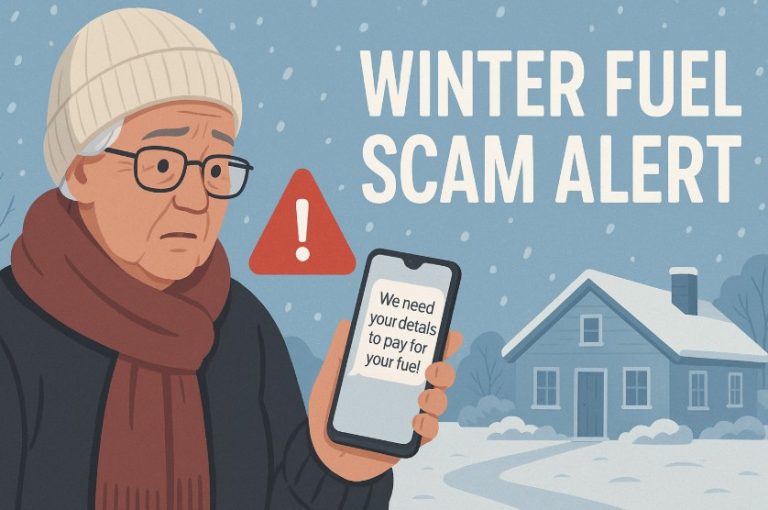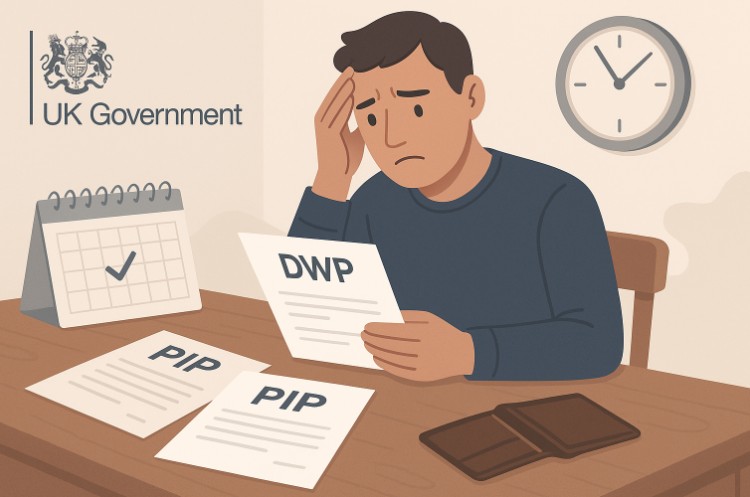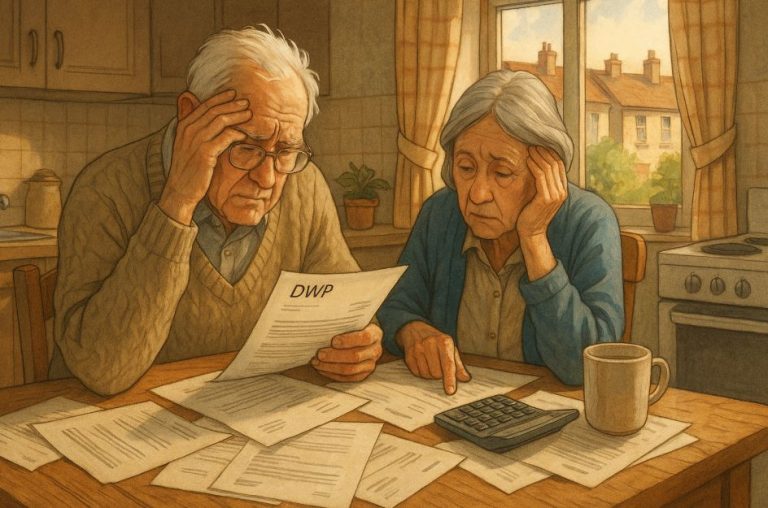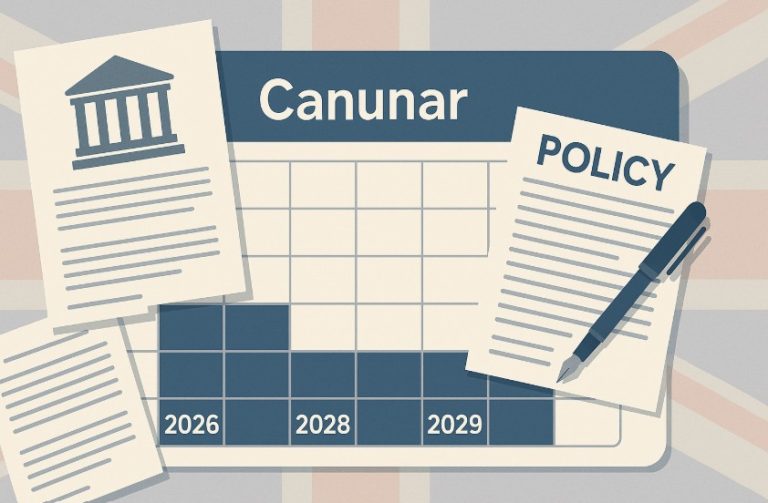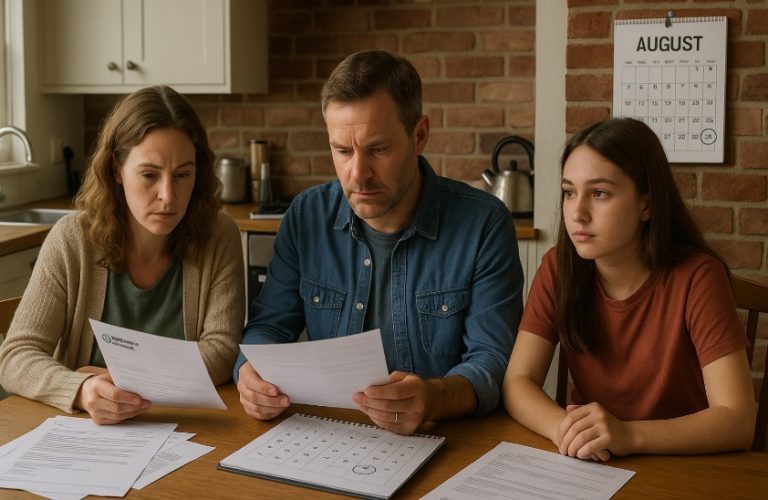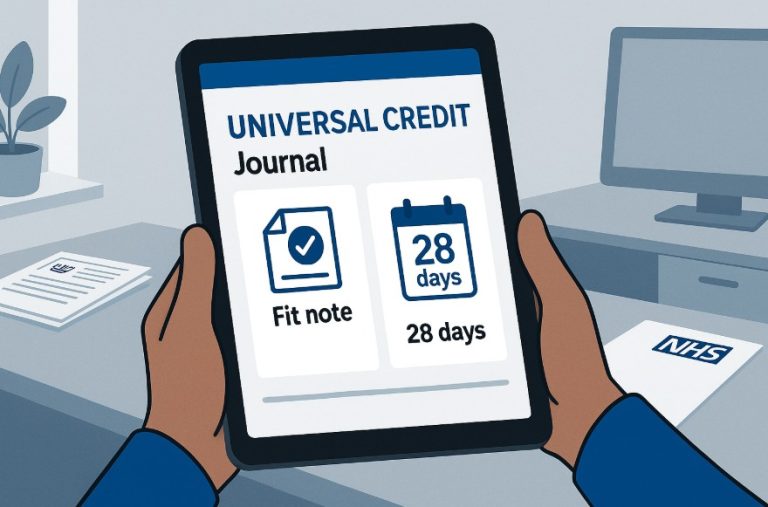As of now, the UK government has not announced any Cost of Living Payment for 2025. No new details or schedules have been confirmed by the Department for Work and Pensions (DWP), and the final cost of living payment was issued in February 2024.
Despite public interest and speculation, it’s important to base your understanding on verified updates. There is currently no rollout scheduled between May and June 2025, and no eligibility criteria or timelines have been confirmed for this year.
Is There a 2025 Cost of Living Payment?
No. The government has not confirmed any Cost of Living Payment for 2025. The most recent confirmed support was the £299 final instalment issued in February 2024 as part of the 2023–2024 cost of living support package.
What If You Receive Universal Credit or PIP?
Being on Universal Credit, PIP, or any other qualifying benefit does not guarantee a cost of living payment in 2025, as no scheme is currently in place. The DWP has made no announcements about new support measures linked to these benefits this year.
However, receiving PIP can still increase your Universal Credit entitlement under existing benefit rules. For instance:
-
If you are awarded PIP while on Universal Credit, you should report it to DWP.
-
This may qualify you for additional elements such as the Limited Capability for Work or Work-Related Activity element.
-
PIP is non-means-tested and does not reduce your Universal Credit, but notifying DWP is crucial for accurate entitlement.
Does Receiving PIP Affect Your Universal Credit or Cost of Living Payment?
Receiving PIP does not affect your regular Universal Credit payments. PIP is a non-means-tested benefit and is considered separately from income when Universal Credit calculations are made. However, receiving PIP can entitle you to additional components or support through Universal Credit.
If you are awarded PIP while claiming Universal Credit, it is important to notify DWP. This allows them to reassess your entitlement and may result in an increase in your monthly Universal Credit payment due to the inclusion of the Limited Capability for Work or Work-Related Activity element.
It also raises the question many ask: do I need to tell Universal Credit if I get PIP? The answer is yes. While PIP is not counted as income, the DWP requires updates about any changes in your circumstances. Reporting your new PIP claim ensures your benefit record is accurate and could lead to a positive reassessment.
How Can You Check the Status of Your Cost of Living Payment?
You can monitor the status of your Cost of Living Payment by logging into your Universal Credit online account. Any notifications or updates from the DWP will appear in your journal. You can also check your bank statements for a payment labelled “DWP COL” or similar.
If the payment does not appear in your account by the end of the expected window, the DWP advises the following steps:
- Verify your benefit entitlement for the qualifying period
- Wait at least 10 working days after the window ends
- Contact DWP by phone or through your online account to report a missing payment
In some cases, payment delays occur due to incorrect or outdated bank information, changes in entitlement, or processing backlog.
What Should You Do If You Haven’t Received the Payment?
If your Cost of Living Payment hasn’t arrived and you believe you are eligible, there are several steps to take:
- Confirm your benefit claim was active during the qualifying period
- Review your online account or journal for any DWP communications
- Wait until the published payment window has fully passed
- Contact DWP directly through the appropriate support channels
It is important not to panic, as payment delays have occurred in previous years and are often resolved without further action.
Are There Other Payments Coming in 2025?
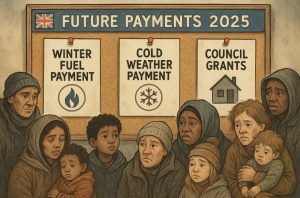
In addition to the main Cost of Living Payment, the government may release other support packages depending on economic developments later in the year. These payments are typically announced in the Chancellor’s statements or the Autumn Budget.
Potential support includes:
- Additional winter fuel payments
- Cold weather payments
- Council-administered hardship grants
- Top-ups for pensioners or carers
It’s advisable to monitor official DWP and GOV.UK pages for new announcements throughout 2025.
Do You Need to Tell Universal Credit If You Get PIP?
Yes, reporting that you receive PIP is essential. Even though PIP is not classed as income, Universal Credit needs to have your full benefit profile on record. Informing DWP about PIP can lead to increased support under your Universal Credit claim, particularly if your health limits your ability to work.
Situations that require updates include:
- New PIP awards
- Changes in existing PIP claim
- Changes to your work capability assessment
- Moving home or changes to household members
Here is a simple overview:
| Scenario | Reporting Required? | Reason |
| Start receiving PIP | Yes | To assess for additional UC components |
| Stop receiving PIP | Yes | May affect entitlements |
| Change in PIP rate | Yes | Ensures accuracy of benefit record |
| No change to PIP | No | Only required if circumstances change |
Failure to report changes could result in underpayment, overpayment, or complications in future benefit reviews.
How Does the Cost of Living Payment Affect Your Benefit Amount?
The Cost of Living Payment does not count as income for any benefits. It is issued separately and does not impact the benefit cap or Universal Credit assessment. Because of this, claimants do not need to worry about receiving less Universal Credit or PIP due to this one-off support.
This payment is not considered taxable income and will not appear on tax returns or benefit recalculations. Claimants are encouraged to use the payment for essential expenses such as energy bills, rent, food, and other necessities.
How Can You Budget with the Cost of Living Payment?
While the payment is a helpful boost, it may only cover a portion of your increased living costs. To manage this effectively:
- Prioritise rent, council tax, and utility payments
- Use free budgeting tools from trusted sites like MoneyHelper
- Set aside a portion for upcoming seasonal expenses
- Seek advice from local councils or charities for additional support
Many communities offer workshops and one-on-one financial counselling to help individuals and families make informed decisions about their spending.
What Are the previous year’s Cost of Living Benefits?
Over the past few years, the UK Government introduced several rounds of Cost of Living Payments to support individuals on low-income benefits and tax credits.
These payments were issued automatically if a claimant met eligibility conditions during specific periods. The payments were made in instalments, varying slightly depending on the benefit type and payment schedule.
Low-Income Benefits and Tax Credits: Payment History
Between 2022 and 2024, eligible claimants may have received the following amounts: £326, £324, £301, £300 and £299. Payments were made to individuals receiving qualifying benefits such as:
- Income-based Jobseeker’s Allowance (JSA)
- Income-related Employment and Support Allowance (ESA)
- Income Support
- Pension Credit
- Universal Credit
- Child Tax Credit
- Working Tax Credit
Payments were not issued if the claimant only received New Style ESA, contributory ESA, or New Style JSA.
Below is a summary of Universal Credit payment eligibility and dates for each round:
| Amount | Universal Credit Eligibility Period | Payment Dates |
| £299 | 13 November 2023 – 12 December 2023 | 6 February – 22 February 2024 |
| £300 | 18 August 2023 – 17 September 2023 | 31 October – 19 November 2023 |
| £301 | 26 January 2023 – 25 February 2023 | 25 April – 17 May 2023 |
| £324 | 26 August 2022 – 25 September 2022 | 8 – 23 November 2022 |
| £326 | 26 April 2022 – 25 May 2022 | 14 – 31 July 2022 |
Universal Credit payments may have arrived later if the claimant changed their bank account or was awarded benefits at a later date. Payments were still issued automatically in such cases.
For claimants receiving income-based JSA, income-based ESA, Income Support or Pension Credit, the payment criteria were based on eligibility for any day within the qualifying period. The following table summarises those details:
| Amount | Benefit Eligibility Period | Payment Dates |
| £299 | Any day between 13 November – 12 December 2023 | 6 February – 22 February 2024 |
| £300 | Any day between 18 August – 17 September 2023 | 31 October – 19 November 2023 |
| £301 | Any day between 26 January – 25 February 2023 | 25 April – 17 May 2023 |
| £324 | Any day between 26 August – 25 September 2022 | 8 – 23 November 2022 |
| £326 | Any day between 26 April – 25 May 2022 | 14 – 31 July 2022 |
Even if a claimant’s payment was only a few pence, they remained eligible for a Cost of Living Payment. Those with a benefit reduced to £0 due to deductions or sanctions (known as a ‘nil award’) were not eligible, unless deductions were due to repayments or hardship payments.
Tax Credit Eligibility and Payment Timeline
For those receiving tax credits, similar eligibility rules applied. However, payments were issued by HMRC instead of the DWP. If you received both tax credits and a low-income benefit, you were only paid once, usually through the DWP.
Payment history for tax credit recipients is shown below:
| Amount | Tax Credit Eligibility Period | Payment Dates |
| £299 | 13 November – 12 December 2023 | 16 February – 22 February 2024 |
| £300 | 18 August – 17 September 2023 | 10 November – 19 November 2023 |
| £301 | 26 January – 25 February 2023 | 2 May – 9 May 2023 |
| £324 | 26 August – 25 September 2022 | 23 – 30 November 2022 |
| £326 | 26 April – 25 May 2022 | 2 – 7 September 2022 |
Only Child Tax Credit payments qualified if a claimant was receiving both Working and Child Tax Credit. Payment delays could occur due to account changes or late decisions.
When Were Claimants Not Eligible?
A claimant would not qualify for a Cost of Living Payment in the following scenarios:
- Universal Credit or benefit was reduced to £0 due to increased income or savings
- A sanction was applied due to not meeting commitments
- Tax credit entitlement for the tax year was below £26
However, claimants may still be eligible if the payment was reduced due to deductions for rent, debt repayments, or if they received a hardship payment.
Disability Cost of Living Payment Summary
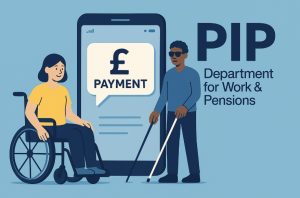
Claimants receiving disability benefits may have been entitled to two separate £150 Disability Cost of Living Payments. Eligible benefits included:
- Personal Independence Payment
- Disability Living Allowance (adult or child)
- Attendance Allowance
- Constant Attendance Allowance
- Armed Forces Independence Payment
- War Pension Mobility Supplement
- Adult or Child Disability Payment (Scotland)
The eligibility periods and payment dates were as follows:
| Eligibility Date | Payment Window |
| 1 April 2023 | 20 June – 4 July 2023 |
| 25 May 2022 | 20 September – Early October 2022 |
If a person received a qualifying disability benefit from both the Ministry of Defence and DWP, payment was usually issued by DWP only. Payments were sent automatically, and guidance was also provided in alternative accessible formats for those who needed it.
Pensioner Cost of Living Payment
Individuals eligible for Winter Fuel Payments in 2022–2023 or 2023–2024 also received a top-up of £150 or £300. This amount was paid in addition to any other Cost of Living Payments and depended on age and household circumstances.
These extra amounts were included in Winter Fuel Payments, issued between November and January each year.
Conclusion
As of now, there is no confirmed Cost of Living Payment for 2025. The UK government has not issued any official update or schedule for new support related to living costs this year.
If you’re receiving benefits like Universal Credit or PIP, it’s still important to keep your information up to date with the DWP to ensure you’re assessed accurately for any future entitlements.
Stay alert to announcements through official channels like GOV.UK and your online Universal Credit account. Avoid misinformation, and seek advice from trusted organisations if you’re struggling with rising living costs.
Frequently Asked Questions
Is There a 2025 Cost of Living Payment?
No, the government has not confirmed any Cost of Living Payment for 2025. The final confirmed payment was issued in February 2024.
Will I Get a Payment if I’m on Universal Credit or PIP?
Being on Universal Credit or PIP does not automatically entitle you to a 2025 payment, as no such scheme currently exists.
What Should I Do If I Hear About a Payment on Social Media?
Only trust information from official sources such as GOV.UK or the Department for Work and Pensions (DWP). Social media rumours may not be accurate.
Should I Report My PIP Award to Universal Credit?
Yes. While there’s no payment currently announced, reporting your PIP to Universal Credit helps ensure you get the correct entitlement, such as additional elements for limited capability for work.
What If I’m Struggling With Living Costs?
You can seek free support from Citizens Advice, local councils, or charities like Turn2Us and StepChange.
Can I Apply for the Payment Later If It’s Announced?
If a payment is announced, eligibility will typically be determined automatically based on benefit records. No application process is expected, but always follow official guidance.

